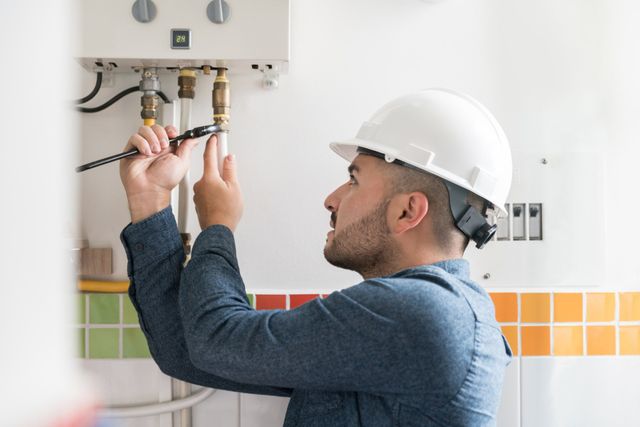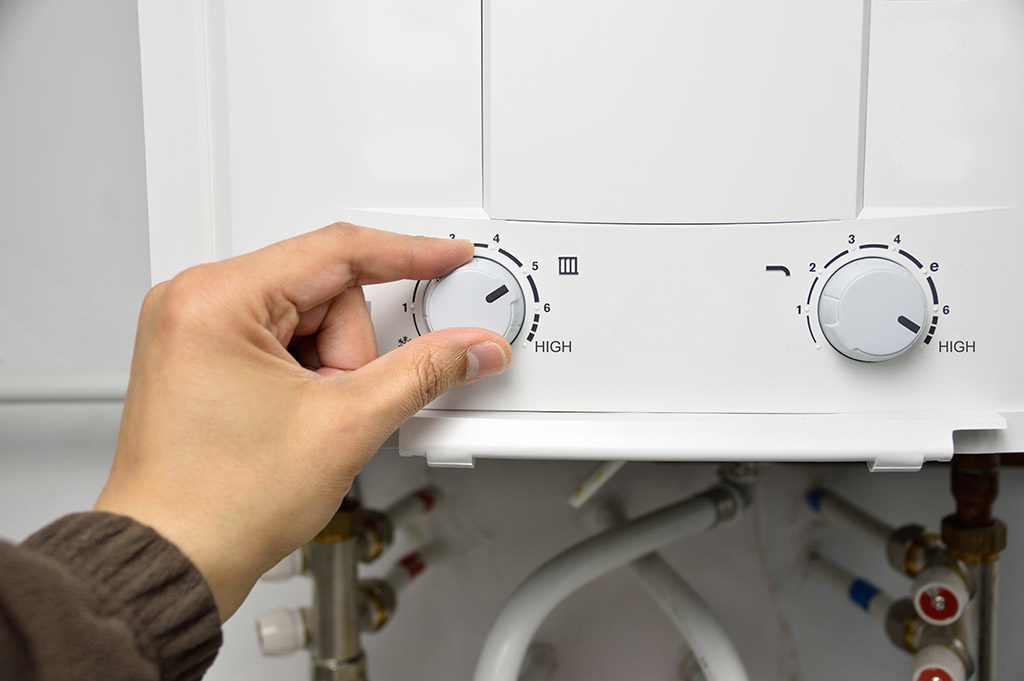How to Cope with the Major Hot Water Heater Urgencies
How to Cope with the Major Hot Water Heater Urgencies
Blog Article
How do you actually feel in regards to Is Your Water Heater Leaking??

A hot water heater is among the most vital standard appliances that can be found in a house. With water heaters, you don't need to go through the tension of heating water by hand each time there is a need to wash, wash, or the dishes. However, there is constantly an opportunity that your water heater would certainly act up as with most mechanical devices.
It is important to note any little malfunction and tackle it promptly before things get out of hand. The majority of times, your hot water heater starts to malfunction when there is an accumulation of sediments as a result of continual use. As a preventative measure, periodic flushing of your hot water heater is suggested to stop sediment build-up and also prevent practical failing.
Typical hot water heater emergencies as well as just how to take care of them
Leaky hot water heater storage tank.
A dripping tank could be an indicator of corrosion. It might create damages to the floor, wall surface as well as electric tools around it. You can also go to danger of having your home flooded. In this situation, you ought to turn off your water heater, allow it to cool, and also very carefully seek the resource of the trouble. Sometimes, all you need to do is to tighten a couple of screws or pipe links in cases of minor leakages. If this does not function as well as the leakage continues, you could need to utilize the services of a technician for an ideal substitute.
Fluctuating water temperature.
Your water heater can begin generating water of various temperatures typically ice cold or scalding warm. In this situation, the first thing you do is to guarantee that the temperature is readied to the preferred level. If after doing this, the water temperature level keeps altering during showers or various other activities, you might have a damaged thermostat. There may be a need to change either the thermostat or the heating device of your water heater.
Too little hot water
Taking care of an insufficient supply of warm water can be frustrating. It may be that the hot water heater can not sustain the warm water need for your home. To deal with this problem, you might attempt to change your heating unit's temperature level dial and wait for a few minutes. If the problem persists, you can ask for the help of a professional plumber. You might update your water heating unit to one with a larger ability.
Blemished or smelly water
When this happens, you need to recognize if the problem is from the water or the container source. If there is no amusing odor when you run cool water, then you are certain that it is your water heater that is damaged. The smelly water can be caused by corrosion or the accumulation of microorganisms or sediments in the water heating system tank.
Conclusion
Some home owners disregard little caution and minor faults in their water heater unit. This only results in additional damage as well as a feasible complete failure of your appliance. You must take care of your hot water heater mistakes as soon as they come near stay clear of even more expenditures and unnecessary emergency troubles.
With water heaters, you don't require to go via the stress of heating water by hand every time there is a demand to take a bathroom, do the washing, or the meals. Your water heater could start producing water of various temperature levels generally ice scalding or cool warm. It might be that the water heating system can't support the warm water demand for your apartment. If there is no amusing smell when you run cool water, after that you are specific that it is your water heating unit that is faulty. The odiferous water can be triggered by rust or the accumulation of microorganisms or sediments in the water heater container.
Common Water Heater Issues and What You Should Do
What Type of Water Heater Do You Have?
Before we begin it’s first important that you identify the type of water heater you have on your property. There are two main types of water heaters out there: conventional and high efficiency.
Both of these types of products typically use either gas or electricity to heat power. There are also solar water heaters that use a thermal collector on the roof or yard to heat the water.
While these models are not as common, they can cut heating costs in half. In this article, we will focus on conventional and high efficiency.
How Do My Electric and Gas Water Heater Work?
Though they look similar, electric and gas water heaters work very differently. It’s important to know their basic function because often problems can be specific to the heating source.
In the electric model, a thermostat on the side of the machine detects the temperature of the water in the tank. When the temperature needs to rise electricity flows to a heating element suspended in the water.
Gas models also use a thermostat device — typically with a mercury sensor at the tip and an additional sensor called a thermocouple. The thermocouple detects whether the pilot light is on and controls the flow of gas.
When the thermostat drops below the appropriate level gas is released which becomes ignited by the pilot light. The flame heats the bottom of the water tank which causes hot water to rise and cold water to drop.
This natural circulation continues until the water reaches the desired temperature. Then, the thermostat triggers the gas control valve to shut off the flow of gas.
What Are the Most Common Issues and How Do You Fix Them?
https://happyhiller.com/blog/common-water-heater-issues-and-what-you-should-do/

Do you like more info about Is Your Water Heater Leaking?? Try to leave a remark down below. We would be pleased to see your thinking about this article. We are looking forward that you visit us again soon. Remember to take the opportunity to promote this content if you enjoyed reading it. Thank you for taking the time to read it.
Visit Our Site Report this page